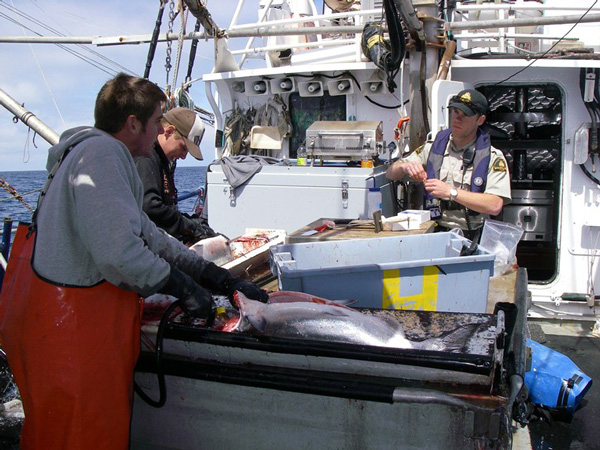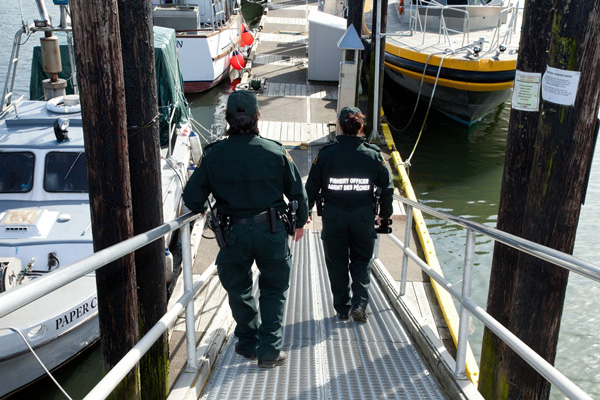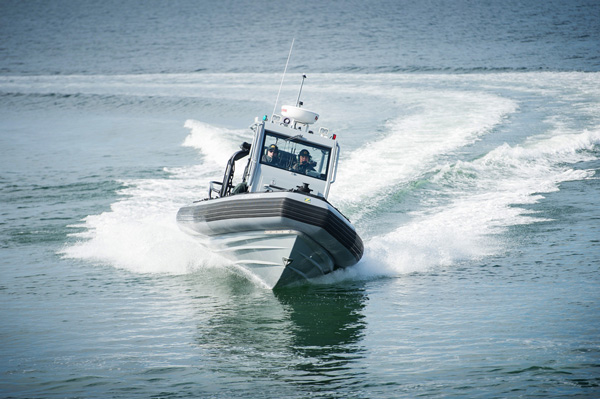When sockeye salmon return en masse to the Fraser River this year, Fisheries and Oceans Canada (DFO) will have a large presence on land and water to ensure commercial fishers don't take more than they're allowed, said Larry Paike, director of DFO's Pacific conservation and protection branch.
The department's most important task will be to protect the endangered Interior Fraser coho which swim alongside sockeye in the areas open to commercial fishing. This puts the endangered fish at risk of getting caught as bycatch.
Until this year, fishers were only permitted to keep three per cent of the coho bycatch. DFO raised the ceiling to 16 per cent this year to allow fishers to catch more sockeye.
Conservationists condemned the move, warning it would set back the recovery of the species, which has been federally designated as endangered since 2002; while Dr. Brian Riddell of the Pacific Salmon Foundation said one year of increased bycatch was endurable -- as long as DFO guarantees catches stay below 16 per cent.
Paike said the department "would do the best with what they have" to ensure the 16 per cent limit is enforced.
60 officers 'doesn't mean much': biologist
When salmon fisheries open in a couple of weeks, between 7 million and 70 million sockeye -- the DFO's conservative estimate is 23 million -- will return to make their final journey up the Fraser. Paike says 60 fishery officers will be on-site to inspect commercial vessels and landing sites, adding that additional personnel could be called in if the need arises. That number didn't mean much to Aaron Hill, biologist with Watershed Watch Salmon Society, an organization advocating for salmon conservation.
"When you think of the vast territory they have to patrol, not only for the salmon fisheries but for all the other fisheries out there, it's not very much," he said.
He is concerned that DFO, despite their best efforts, won't have anywhere near the resources needed to ensure proper monitoring and enforcement. When Watershed Watch Salmon Society videotaped commercial fishers mishandling bycatch last year, DFO did nothing upon seeing the evidence, said Hill.

Hill worries the same could happen to coho this year.
Paike said it would be impossible to have an around-the-clock presence and that the mere possibility of fishery officers being present should deter fishers from wrongdoing.
"It's like speeding in traffic," he said. "You're never sure if there's going to be a traffic policeman so you watch your speed. It's the same with fisheries."
DFO has around a dozen smaller patrol vessels on the Fraser that the fishery officers will use to perform on-board audits. In any area open to fishing there could be between 20 and a couple of hundred commercial vessels -- with recreational fishers it could be upwards a thousand, said Paike.
"Is there a guarantee we can check every vessel?" he said. "No. I could never guarantee that."
He would like upwards of 95 per cent of all vessels to be inspected but conceded it could be difficult to reach that number.
Department lacks manpower: former officer
Paike said the most difficult thing would be to predict where the illegal activity will take place and have officers ready when it happens. He said his crystal ball wasn't very good these days.
In a case where dead coho is illegally thrown overboard it would be necessary for fishery officers to present to witness the criminal activity, said Paike. "We hear about it happening and investigate where we can."

Veteran fishery officer Randy Nelson, who retired from the position as director of DFO's conservation and protection branch in the Pacific region in 2012, said it was necessary to do more "than just appear on the water" as fishers had too many ways of hiding illegal bycatch.
Fishery officers would have to perform stringent audits of all the fish on board and Nelson doubted the feasibility of that happening.
"On seine boats the fish get dumped into a big hole and there's nothing a fishery officer can do to check that hole and see how many coho are in there," he said, adding that he'd seen a number of creative ways to discard of illegal catches throughout his career.
Nelson said that most fishers were law-abiding but that "the numbers can go askew in a big hurry by only a few guys not abiding by the rules."
He said from experience and reports from other officers that whenever there's a prohibited species involved in a commercial fishery a fair amount of under-reporting goes on -- but putting an estimate on the amount was impossible because the department lacked the manpower to catch most of the wrongdoers.
Unless all fishers are accurately reporting their coho catch it will be impossible to know how many fish actually return -- and by that how many are lost as bycatch, he said.
Industry should pay for independent monitors: biologist
Nelson suggested that independent monitors be placed on the commercial vessels to assure accurate reporting of catches.
Hill supported that idea. He believed it would create a much-needed incentive for fishers to take care and release bycatch back to the water.
"We don't have any of that right now," he said.
The costs of third-party monitoring shouldn't befall DFO, said Hill. Instead he said it should be funded by the fishery industry.
Paike said critique of the department's effort was premature "as the fisheries hadn't even started." He remains confident they are prepared.
"We certainly didn't set up for it not to work," said Paike, dismissing claims that the department's coffers were stretched too thin. "You could always use more, but do I have enough to do an adequate job? Yes I do."
Nelson disagreed. He said fishery officers will do the best they can, but it won't be enough.
"It's extremely difficult if not impossible to properly validate the catches with the existing resources that officers have to work with," he said. ![]()
Read more: Environment















Tyee Commenting Guidelines
Comments that violate guidelines risk being deleted, and violations may result in a temporary or permanent user ban. Maintain the spirit of good conversation to stay in the discussion.
*Please note The Tyee is not a forum for spreading misinformation about COVID-19, denying its existence or minimizing its risk to public health.
Do:
Do not: